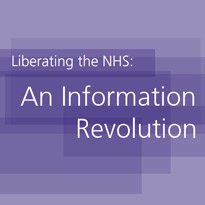NHS ‘lacks skills’ for info revolution
- 13 January 2011

Intellect has argued that the National Programme for IT in the NHS may have left some trusts without the skills needed to deliver the transformation envisaged by the ‘information revolution’.
The industry body’s response to the consultation on a new information strategy for the NHS, which closes on Friday, notes that trusts and other NHS organisations will be expected to undertake a complex set of management and IT tasks to deliver the information revolution.
It adds that: “Under the National Programme for IT, trusts were not called upon to make what we might consider as risky ICT decisions and therefore may lack the necessary experience and ability to make such decisions effectively."
The response notes that this may lead to hesitancy in “undertaking the transformation that may be needed.”
Over the past few months, Intellect has held roundtables, workshops and meetings with its members and senior figures from NHS Connecting for Health to develop proposals on the key topics for delivering an information revolution.
More than 80 organisation have contributed in some way, with 30 providing a direct response.
Other key points the resulting response focus on the demand for proper informatics teams or functions to be “uplifted and recognised at board level as engines for driving transformation.”
The organisation says that chief information officers should be included within executive management teams to make informatics “more prominent” within NHS organisations.
It also says the NHS as a whole needs to “value information and systems by demonstrating to staff that a larger proportion of spend on ICT is required, in addition to better information sharing, to deliver good quality care.”
It contends that the current percentage spend on information solutions does not reflect the value of information to the care process.
Intellect is also concerned that the consultation document, ‘Liberating the NHS: an Information Revolution’ does not adequately recognise the extent of the cultural change that will be required if patients are to become active “information consumers.”
While it supports access to health records, it calls for greater clarity about what the government means by patient ‘control’ and what rights and responsibilities they will be given.
For example, it argues that while patients should be able to mark inaccuracies on a record, they should not be able to choose what a consultant writes nor be able to delete it.




